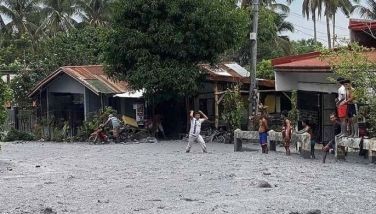EDITORIAL - Keep them safe
The glut in nurses and other health professionals is a boon for the many communities where public health care is still woefully inadequate. The Department of Health has announced that it is recruiting 1,000 midwives for deployment to communities across the country with the highest maternal and child morbidity and mortality rates. Earlier this year, the government also hired 10,000 out of a targeted 11,500 nurses for deployment in remote areas.
For communities where the nearest health center is a bus ride of several hours away, the arrival of health workers, though still not enough, is a welcome development. The government must give the nurses and midwives something more than modest compensation, free food, and the promise of priority in hiring for stable employment if the opportunity opens up. Otherwise this glut will not last long.
While bucolic landscapes may be pretty, working in a remote area can be a personal sacrifice. There is an acute lack of almost everything, from sanitation facilities to decent housing and clean water. Electricity and telecommunications services can be spotty or even non-existent.
Some of the nurses and midwives are going along with the deployment out of a sense of civic duty or public service, but others simply need a job. And like many of the country’s teachers, unemployed or underemployed nurses and midwives are likely to seek better pay overseas, even if it means taking jobs that are not related to health care. Or else they will find jobs in other sectors in the Philippines.
A priority concern for both health workers and teachers alike who are deployed in far-flung areas is personal safety. This is true particularly in the conflict areas of Mindanao, where such workers are most needed, but where they have been targeted by threat groups such as the Abu Sayyaf. Most of these workers are women who are vulnerable to violent attacks. Teachers have been kidnapped from schools and waylaid even on a boat in the waters off Zamboanga Sibugay.
Communities benefiting from the deployment of health workers must assist government troops and be involved themselves in keeping everyone safe, with security efforts coordinated by local government executives. If the government cannot give public health workers attractive compensation, it must at least be able to give them some assurance of safety.
- Latest
- Trending



























